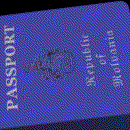| Hot Topics | |
|---|---|
English speaking hearing doctors
57 posts
• Page 2 of 2 • 1, 2
Re: English speaking hearing doctors
Even l33t h4x0r k4tz...
Toonce caught in the act of haxoring the gibson
Kitteh's h4xor sch00lz:
Toonce caught in the act of haxoring the gibson
Kitteh's h4xor sch00lz:
You do not have the required permissions to view the files attached to this post.
-

Coligny - Posts: 21824
- Images: 10
- Joined: Sat Jan 17, 2009 8:12 pm
- Location: Mostly big mouth and bad ideas...
Re: English speaking hearing doctors
I need some advice on something that just happened. For the second time in a few weeks I had an inner ear infection. Went to the ENT guy, who I dislike, since he whispers, and when you have an ear infection and you can't hear in the first place, it is all the more maddening. Anyway, he guy me a script for meds, which I took over the pharmacy next door. They fill the prescription and home I come. Started taking the medicine before dinner last night, woke up today with a headache and felt I was squinting to be able to read stuff, but thought, well its part of the ear problem. Went to work, and didn't feel great, but powered through, when I got home, my wife said somebody had called but didn't leave a message, but she didn't recognize the number. Just a little while ago, we get a call, it is from the pharmacy telling me to stop taking the medicine, they made a mistake. They gave me some hormone treatment medicine, instead of inner ear infection medicine. The pharmacist just came to deliver the new meds, but with hardly any apology or anything. My wife said why didn't you leave a message and say stop earlier, and the guys weak ass excuse, we don't know how to speak English! My wife let him have it, and then he started to apologize. Is there anything I can or should do? Do I report them, or just suck it up? I'm not a happy camper about this!
-

canman - Maezumo
- Posts: 1765
- Images: 0
- Joined: Thu Jul 25, 2002 11:08 pm
- Location: Hachinohe
Re: English speaking hearing doctors
canman wrote:I need some advice on something that just happened. For the second time in a few weeks I had an inner ear infection. Went to the ENT guy, who I dislike, since he whispers, and when you have an ear infection and you can't hear in the first place, it is all the more maddening. Anyway, he guy me a script for meds, which I took over the pharmacy next door. They fill the prescription and home I come. Started taking the medicine before dinner last night, woke up today with a headache and felt I was squinting to be able to read stuff, but thought, well its part of the ear problem. Went to work, and didn't feel great, but powered through, when I got home, my wife said somebody had called but didn't leave a message, but she didn't recognize the number. Just a little while ago, we get a call, it is from the pharmacy telling me to stop taking the medicine, they made a mistake. They gave me some hormone treatment medicine, instead of inner ear infection medicine. The pharmacist just came to deliver the new meds, but with hardly any apology or anything. My wife said why didn't you leave a message and say stop earlier, and the guys weak ass excuse, we don't know how to speak English! My wife let him have it, and then he started to apologize. Is there anything I can or should do? Do I report them, or just suck it up? I'm not a happy camper about this!
Sorry to hear about your experience. This is quite shocking.
Who was at fault, your ear doctor for writing the wrong prescription or the pharmacy for switching the medicines with those for another patient? I suspect it is the latter, because ear doctors do not do hormone treatment.
Are you sure it was not some kind of chemotherapy? If you still have the medicines, you could try to check on the internet what they are.
“To learn who rules over you, simply find out who you are not allowed to criticize.”
“I know not with what weapons World War III will be fought, but World War IV will be fought with sticks and stones.” ― Albert Einstein
-

Russell - Maezumo
- Posts: 8580
- Images: 1
- Joined: Fri Aug 13, 2010 11:51 pm
Re: English speaking hearing doctors
canman wrote:my wife said somebody had called but didn't leave a message, but she didn't recognize the number
off main topic, but just in case. if you want to know the number you got called in your old fixed phone, call 136 and you can get the number unless the opponent withhold the number.
what a nice guy i am.

-

Takechanpoo - Posts: 4294
- Images: 4
- Joined: Fri Oct 06, 2006 10:47 pm
- Location: Tama Prefecture(多摩県)
Re: English speaking hearing doctors
canman wrote: Is there anything I can or should do? Do I report them, or just suck it up? I'm not a happy camper about this!
This gets into a cultural issue as to what is acceptable behaviour (both by the pharmacist and by you) and I would tend to consult with Japanese about this rather than the foreign community, or defer to my wife's views (or best, ask her to ask around).
Similar examples bring up a lot of discussion on the internet, for your wife to consider: https://www.google.co.jp/search?client= ... 8Qe614GoAQ
-

wagyl - Maezumo
- Posts: 5950
- Images: 0
- Joined: Thu Mar 17, 2011 11:08 pm
- Location: The Great Plain of the Fourth Instance
Re: English speaking hearing doctors
I've heard "stories" of licenses being lost of this type of thing from physicians here....but on the other end of the spectrum, I think many are just too lazy to pursue the issue. (I'd pursue it if I were you..though I tend to look up every med I'm given because more than once I've been given prescription OTC meds with wacky generic names for ridiculous costs)
-

matsuki - Posts: 16047
- Joined: Wed Feb 02, 2011 4:29 pm
- Location: All Aisu deserves a good bukkake
Re: English speaking hearing doctors
My wife is going to call the clinic and inform them what happened, then contact the pharmacy and see what they say. I'm not out for any monetary gain or anything, I just want them to be more careful.
-

canman - Maezumo
- Posts: 1765
- Images: 0
- Joined: Thu Jul 25, 2002 11:08 pm
- Location: Hachinohe
Re: English speaking hearing doctors
canman wrote:My wife is going to call the clinic and inform them what happened, then contact the pharmacy and see what they say. I'm not out for any monetary gain or anything, I just want them to be more careful.
Did you consider the possibility that these meds (as briefly you have taken them) could cause permanent bodily damage?
For this reason alone it may be recommended to file a claim, so that if it turns out bad you have some legal standing.
“To learn who rules over you, simply find out who you are not allowed to criticize.”
“I know not with what weapons World War III will be fought, but World War IV will be fought with sticks and stones.” ― Albert Einstein
-

Russell - Maezumo
- Posts: 8580
- Images: 1
- Joined: Fri Aug 13, 2010 11:51 pm
Re: English speaking hearing doctors
If you start growing moobs and notice some shrinkage...
-

matsuki - Posts: 16047
- Joined: Wed Feb 02, 2011 4:29 pm
- Location: All Aisu deserves a good bukkake
Re: English speaking hearing doctors
matsuki wrote:If you start growing moobs and notice some shrinkage...
then give us the recipe...
But maybe hit the local koban first... They might be happy to provide you the proper number to call for investigating the issue just as a way to get rid of you as quickly as possible and go back to their siesta.
Outside of the "might have killed you" issue. There is also the legal angle where they provided you prescription drugs that you were not legally allowed to obtain.
Those shitheads had 1 fucking job... but it's super weird, the way things are processed in the big T there is no room for this kind of big errors. Even when you don't speak the language...
-

Coligny - Posts: 21824
- Images: 10
- Joined: Sat Jan 17, 2009 8:12 pm
- Location: Mostly big mouth and bad ideas...
Re: English speaking hearing doctors
Quick update. My wife called the doctor and explained what happened. He assured her that even though I was given incorrect medicine, there was no risk to me. But, if I was worried I could go in for testing. Not sure what kind of tests. Then another pharmacist came to the house to apologize, and the president of the pharmacy is coming at 5:00pm. We will see what he has to say!
By the way no moobs, only had blurred vision and a headache. But could also be ear infection related.
By the way no moobs, only had blurred vision and a headache. But could also be ear infection related.
-

canman - Maezumo
- Posts: 1765
- Images: 0
- Joined: Thu Jul 25, 2002 11:08 pm
- Location: Hachinohe
Re: English speaking hearing doctors
Have they explained how they mixed the meds up to begin with?
-

matsuki - Posts: 16047
- Joined: Wed Feb 02, 2011 4:29 pm
- Location: All Aisu deserves a good bukkake
Re: English speaking hearing doctors
canman wrote:Quick update. My wife called the doctor and explained what happened. He assured her that even though I was given incorrect medicine, there was no risk to me. But, if I was worried I could go in for testing. Not sure what kind of tests. Then another pharmacist came to the house to apologize, and the president of the pharmacy is coming at 5:00pm. We will see what he has to say!
By the way no moobs, only had blurred vision and a headache. But could also be ear infection related.
Did he know what you mistakenly took ?
if yes... then whatev...
if not... then blacklist the guy. The "and not a single fuck was given that day" behaviour is not so great for a doctor.
Got me sum prescription lately where they wanted to keep in their ward for observation at least a week and only skipped it because I literally live in an hospital. and maybe also because I threatened to shoot on of their nurse without wurnang (that nutcase was schooled in chechnya I'm sure)
-

Coligny - Posts: 21824
- Images: 10
- Joined: Sat Jan 17, 2009 8:12 pm
- Location: Mostly big mouth and bad ideas...
Re: English speaking hearing doctors
So here is what I found out after meeting the director of the company.The meds I took were hormone treatment for menopausal women. What happened according to the director of the company was that a new worker by mistake put the wrong meds in the wrong basket that they use to give to patients. The main pharmacist didn't check carefully what he was giving out, hence the mix up. The apologized profusely, said they will check their whole procedure to make sure it never happens again. They left bowing and scraping and a box of jellies. I don't think I will proceed any further as I think this was a wake up call to them and the doctor, and from what it sounds like the meds they mistakenly gave me won't have any effects on my health. But both the doctor and the director said if I feel anything to call them at once.
-

canman - Maezumo
- Posts: 1765
- Images: 0
- Joined: Thu Jul 25, 2002 11:08 pm
- Location: Hachinohe
Re: English speaking hearing doctors
That all sounds extremely sensible. And it's very refreshing to see someone not going full drama queen/give me money over something like this. Power to your elbow.
It is a tale told by an idiot, full of sound and fury, signifying nothing.
- Macbeth (Act 5, Scene 5)
William Shakespeare, April 1564 - May 3rd 1616
- Macbeth (Act 5, Scene 5)
William Shakespeare, April 1564 - May 3rd 1616
-

Wage Slave - Maezumo
- Posts: 3765
- Joined: Wed Aug 15, 2012 12:40 am
Re: English speaking hearing doctors
Yep, them and no-one else, so they can keep it "in the family". I'd move on to someplace else.canman wrote:to call them at once.
-

Grumpy Gramps - Maezumo
- Posts: 2204
- Joined: Mon Oct 14, 2013 2:22 am
- Location: 地獄の便所
Re: English speaking hearing doctors
canman wrote:The meds I took were hormone treatment for menopausal women.
You're just being moody and emotional.
And somewhere, there is a woman with sparkly clean Eustachian tubes, and hot flushes.
Her fallopian tubes are probably sparkly clean, too.
-

wagyl - Maezumo
- Posts: 5950
- Images: 0
- Joined: Thu Mar 17, 2011 11:08 pm
- Location: The Great Plain of the Fourth Instance
Re: English speaking hearing doctors
Wage Slave wrote:That all sounds extremely sensible. And it's very refreshing to see someone not going full drama queen/give me money over something like this. Power to your elbow.
mistakes without traceable consequence tend to happen again and again... especially in japan... land of the "as long as you don't get caught"
giving female only treatment to a male patient is kinda cherry on top. feels like fucking up turned into an art form...
the whole bowing into an excuse is quite cringe worthy too... like if they became the victims because they had to say they were sorry. while heartfeltly not giving a flying fuck...
-

Coligny - Posts: 21824
- Images: 10
- Joined: Sat Jan 17, 2009 8:12 pm
- Location: Mostly big mouth and bad ideas...
Re: English speaking hearing doctors
also... tell us when you start working the corner you dirty stud...
-

Coligny - Posts: 21824
- Images: 10
- Joined: Sat Jan 17, 2009 8:12 pm
- Location: Mostly big mouth and bad ideas...
Re: English speaking hearing doctors
Wage Slave wrote:That all sounds extremely sensible. And it's very refreshing to see someone not going full drama queen/give me money over something like this. Power to your elbow.
Yes, well put. And the extent of your consultations with them should satisfy that very prudent suggestion the Other Herr Doktor made above, which I also thought most epsilon. Anyways, a shame you didn't get some moobs, but hope you feel better.
-

kurogane - Maezumo
- Posts: 4483
- Joined: Fri Aug 04, 2006 5:24 pm
- Location: Here
Re: English speaking hearing doctors
Wage Slave wrote:And it's very refreshing to see someone not going full drama queen/give me money over something like this.
Please. We know the real reason he's dropping it is any payout he could get in Japan would be too paltry to make it worth his while.
Interestingly enough I just happened to hear this fact on a podcast yesterday.
Medication errors happen all the time, an estimated one million each year, contributing to 7,000 deaths.
That's in the US. Apparently one of the causes over the years has been doctors' famously bad handwriting. Tech is helping reduce that though.
-

Samurai_Jerk - Maezumo
- Posts: 14387
- Joined: Mon Feb 09, 2004 7:11 am
- Location: Tokyo
Re: English speaking hearing doctors
Samurai_Jerk wrote:Interestingly enough I just happened to hear this fact on a podcast yesterday.Medication errors happen all the time, an estimated one million each year, contributing to 7,000 deaths.
That's in the US. Apparently one of the causes over the years has been doctors' famously bad handwriting. Tech is helping reduce that though.
In Japan any prescriptions are printed out and delivered to the pharamacy, so they don't have the bad handwriting excuse.
•I prefer liberty with danger to peace with slavery.•
-

Mike Oxlong - Posts: 6818
- Joined: Wed Oct 20, 2004 5:47 pm
- Location: 古き良き日本
Re: English speaking hearing doctors
Mike Oxlong wrote:Samurai_Jerk wrote:Interestingly enough I just happened to hear this fact on a podcast yesterday.Medication errors happen all the time, an estimated one million each year, contributing to 7,000 deaths.
That's in the US. Apparently one of the causes over the years has been doctors' famously bad handwriting. Tech is helping reduce that though.
In Japan any prescriptions are printed out and delivered to the pharamacy, so they don't have the bad handwriting excuse.
Medication errors happen everywhere in the world. It's just a function of the sheer number of prescriptions written a year, the increasing range of medications and humans being, well, human beings. We can reduce the number but will never eliminate it completely. So yes, review of systems and checking is always needed, mistakes where they happen need to be investigated for root cause but it isn't realistic to demand zero errors and I don't believe any country can claim anything such.
It is a tale told by an idiot, full of sound and fury, signifying nothing.
- Macbeth (Act 5, Scene 5)
William Shakespeare, April 1564 - May 3rd 1616
- Macbeth (Act 5, Scene 5)
William Shakespeare, April 1564 - May 3rd 1616
-

Wage Slave - Maezumo
- Posts: 3765
- Joined: Wed Aug 15, 2012 12:40 am
Re: English speaking hearing doctors
Wage Slave wrote:Mike Oxlong wrote:Samurai_Jerk wrote:Interestingly enough I just happened to hear this fact on a podcast yesterday.Medication errors happen all the time, an estimated one million each year, contributing to 7,000 deaths.
That's in the US. Apparently one of the causes over the years has been doctors' famously bad handwriting. Tech is helping reduce that though.
In Japan any prescriptions are printed out and delivered to the pharamacy, so they don't have the bad handwriting excuse.
Medication errors happen everywhere in the world. It's just a function of the sheer number of prescriptions written a year, the increasing range of medications and humans being, well, human beings. We can reduce the number but will never eliminate it completely. So yes, review of systems and checking is always needed, mistakes where they happen need to be investigated for root cause but it isn't realistic to demand zero errors and I don't believe any country can claim anything such.
Some sort of system to reduce / prevent errors from happening would be nice to see.
•I prefer liberty with danger to peace with slavery.•
-

Mike Oxlong - Posts: 6818
- Joined: Wed Oct 20, 2004 5:47 pm
- Location: 古き良き日本
Re: English speaking hearing doctors
Mike Oxlong wrote:Wage Slave wrote:Mike Oxlong wrote:Samurai_Jerk wrote:Interestingly enough I just happened to hear this fact on a podcast yesterday.Medication errors happen all the time, an estimated one million each year, contributing to 7,000 deaths.
That's in the US. Apparently one of the causes over the years has been doctors' famously bad handwriting. Tech is helping reduce that though.
In Japan any prescriptions are printed out and delivered to the pharamacy, so they don't have the bad handwriting excuse.
Medication errors happen everywhere in the world. It's just a function of the sheer number of prescriptions written a year, the increasing range of medications and humans being, well, human beings. We can reduce the number but will never eliminate it completely. So yes, review of systems and checking is always needed, mistakes where they happen need to be investigated for root cause but it isn't realistic to demand zero errors and I don't believe any country can claim anything such.
Some sort of system to reduce / prevent errors from happening would be nice to see.
And there isn't any sort of system in place? I doubt it. But that's not to say it can't be improved. Out of interest, I wonder how the error rate here compares with other countries. My personal feeling is that it is likely to be better than the UK but I don't have any evidence for that.
It is a tale told by an idiot, full of sound and fury, signifying nothing.
- Macbeth (Act 5, Scene 5)
William Shakespeare, April 1564 - May 3rd 1616
- Macbeth (Act 5, Scene 5)
William Shakespeare, April 1564 - May 3rd 1616
-

Wage Slave - Maezumo
- Posts: 3765
- Joined: Wed Aug 15, 2012 12:40 am
Re: English speaking hearing doctors
There doesn't seem to be much, but what there is will not be surprising to most of us...take this gem:
Features of Japanese Health Care Affecting Law
Health care in Japan is provided on a price-controlled, fee-for-service basis. Since 1961, all legal residents (including noncitizens) have been covered by national health insurance [1, 7]. The percentage of the GDP allocated to health care in 2004 was 8%, compared with 15.2% in the United States and 7.4% to 11.5% in other Western nations [33]. This relative efficiency in provision of care has not entailed any substantial sacrifice in technology advancement; the level of technology in top Japanese hospitals parallels practices worldwide. Japanese longevity is among the world’s best, and infant mortality statistics are excellent [34]. Much credit for these achievements goes to health-promoting lifestyle factors, but the healthcare system contributes as well [1].
Traditionally, with respect to physician-patient relationships, a paternalistic paradigm prevailed in Japan. The creed of medieval Japan’s feudal lords in ruling their subjects—“Keep them ignorant and dependent”—was often ironically applied to doctors’ methods of managing patients [31]. Customary practice hid cancer diagnoses from patients, withheld information about prescription drugs, refused access to their medical records, and sometimes conditioned provision of medical treatment on waiver of the right to sue or complain [19].
However, principles of transparency have gained traction in Japan since the 1990s following a scandal of HIV-contaminated blood transfusions [3] and enactment of freedom of information [17] and medical records access measures [18]. Recently, coverups of medical error at hospitals of high repute received front page coverage in Japanese media, and public distrust of the previously sacrosanct medical profession has become a topic of national concern [21].
The Japanese healthcare establishment stood ill-prepared to address this public questioning. Institutional structures to monitor quality of care have been weak. Professional licensure and discipline authority, exercised by the Ministry of Health, Labor, and Welfare, seldom inquired into failures of medical safety. Peer review was the exception, not the rule. Few hospitals conducted morbidity and mortality conferences. Medical education’s hierarchical structure discouraged questioning of practices taught by revered professors with control over employment placements, even when those practices were unsupported by good empiric data [1]. The hospital accreditation system has fostered improvement only marginally; a voluntary accreditation system does exist, but accreditation is unnecessary to qualify for reimbursement for procedures performed or drugs prescribed. Less than one-third (2523 of 8832) of hospitals are accredited [9], and in any case, accreditation criteria do not address compliance with standards of evidence-based medicine or honesty with patients about adverse events. Physicians can advertise specialty expertise and practice in specialty fields without specialty certification [6]. These weaknesses in professional accountability structures have channeled public attention toward legal institutions regulating medical quality.
http://www.ncbi.nlm.nih.gov/pmc/articles/PMC2628506/
•I prefer liberty with danger to peace with slavery.•
-

Mike Oxlong - Posts: 6818
- Joined: Wed Oct 20, 2004 5:47 pm
- Location: 古き良き日本
Re: English speaking hearing doctors
I had it several times that something was wrong, missing, wrong quantity etc, actually always the mistake of the doctor, never the pharmacy. And my meds don't change that often, for the most part it's rinse and repeat every three months.
So I have made a habit of writing down, what I am expecting to get and then do a quick check through the bags before leaving the pharmacy. Saved me some extra trips down to the hospital and saved the doctor from getting a proper telling-off in the middle of the waiting area, where everyone could listen to his apology
So I have made a habit of writing down, what I am expecting to get and then do a quick check through the bags before leaving the pharmacy. Saved me some extra trips down to the hospital and saved the doctor from getting a proper telling-off in the middle of the waiting area, where everyone could listen to his apology
-

Grumpy Gramps - Maezumo
- Posts: 2204
- Joined: Mon Oct 14, 2013 2:22 am
- Location: 地獄の便所
57 posts
• Page 2 of 2 • 1, 2
Who is online
Users browsing this forum: No registered users and 12 guests

